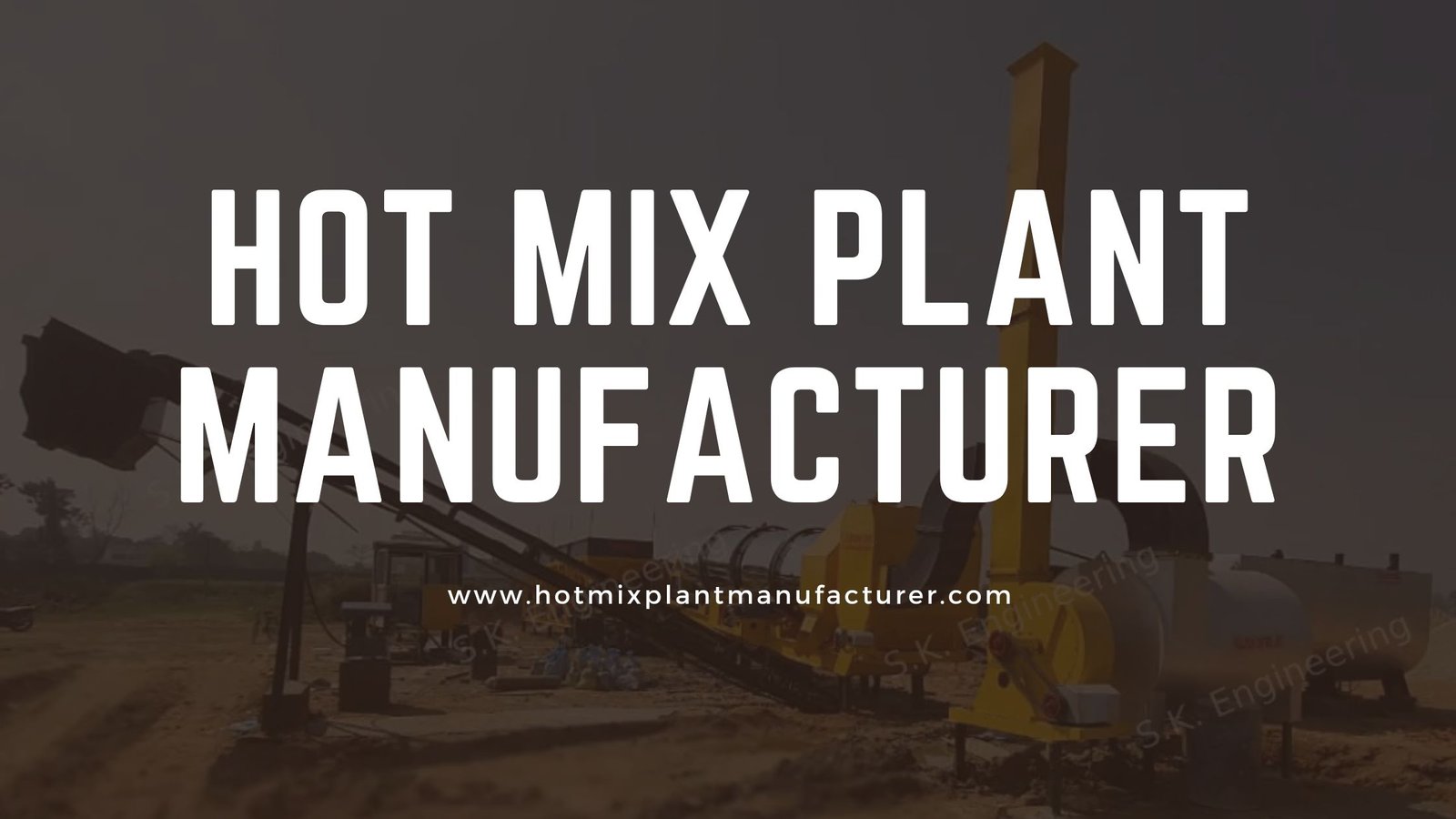
In India’s infrastructure development landscape, government projects drive the demand for industrial machinery. Of all the most critical among these machines are Hot Mix Plants, which are the lifeblood of contemporary road construction activity. For every Hot Mix Plant Manufacturer, road construction and infrastructure projects executed by governments are not only opportunities, but also key drivers of demand.
Let’s delve into how government investment in infrastructure directly drives the increase in demand for hot mix plants in India, and why that makes it so important for those who operate within this domain.
Government as the Biggest Infrastructure Client
The Indian Government, in agencies such as the National Highways Authority of India (NHAI) and Public Works Departments (PWDs), is the single biggest customer in the infrastructure space. With billions spent every year on highways, rural roads, smart cities, and connectivity corridors, the spillover on machinery buyouts is huge.
With every new tender issued for a road development project, there is an added need for on-site mixing plants. A Hot Mix Plant Manufacturer stands to gain directly from this pipeline since contractors tend to have to install and use their own equipment to meet quality and delivery schedules.
PM Gati Shakti & Bharatmala: A Game Changer
Aspirational schemes such as PM Gati Shakti, Bharatmala Pariyojana, and Smart Cities Mission are generating unprecedented levels of demand for advanced road infrastructure. With new roads, highways, and flyovers being proposed across states, demand for high-capacity, efficient asphalt mixing machines jumps.
These long-term, multi-crore projects also demand assured sourcing by a seasoned Hot Mix Plant Manufacturer. Several government contractors now ask for direct linkages with OEMs to enable speedy delivery and service support.
Compulsory Quality Compliance Increases Demand for Assured Equipment
Government contracts are implemented in accordance with strict adherence to MoRTH (Ministry of Road Transport and Highways) specifications. These specifications require minimum capacity of production, temperature control of asphalt, dust collection systems, and sensor-based automation in the mixing units.
These regulatory environments compel contractors to invest in qualified, high-performance equipment. Of course, this makes the position of any Hot Mix Plant Manufacturer with an emphasis on strong, compliant, and contemporary plant design even more pre-eminent.
Quicker Execution Schedules Translate into More Plant Installations
In a bid to curb project delays, government agencies are compressing execution schedules. This usually translates into concurrent site development, with several units operating in tandem across regions.
Consequently, one contractor who gets five road sections to work on can now require two or more hot mix plants simultaneously. This highly increases orders for any established Hot Mix Plant Manufacturer, particularly those that are in a position to supply multiple units with quick lead times.
Rural Connectivity (PMGSY) Generates Demand for Compact & Mobile Plants
Pradhan Mantri Gram Sadak Yojana (PMGSY) and rural connectivity schemes aim to link far-flung villages with all-weather roads. These schemes typically operate in challenging topographies with limited access to infrastructure.
In this, the preference shifts towards small, mobile plants that are easily portable and can be mounted with minimal infrastructure. A visionary Hot Mix Plant Maker who provides mobile or container-based solutions enjoys definite demand surges during such rural development stages.
Public-Private Partnership (PPP) Projects Facilitate Long-Term Equipment Investment
Private contractors in the Build-Operate-Transfer (BOT) and Hybrid Annuity Model (HAM) models are supposed to keep roads in operational condition for 10–15 years. This favors the deployment of solid, reliable machinery that can handle long-term contracts.
In these situations, approaching a seasoned Hot Mix Plant Manufacturer becomes a top priority, as customers look for machines with minimal failure rates, energy efficiency, and extended service warranty.
Government Push for Make in India Supports Domestic Manufacturers
Government bias towards Made-in-India machinery in tenders enhances the domestic market for plant makers. Government policies favor project bidders to purchase equipment from Indian companies with good after-sales support.
This provides a huge boon to an Indian Hot Mix Plant Manufacturer with indigenous R&D, manufacturing, and local standard compliance. Purchasers are increasingly being asked to provide evidence of purchase from Indian firms in order to be eligible for specific tenders.
Tax Incentives & Financing Enhance Buying Capability
Initiatives such as MSME financing, NABARD infrastructure credit, and subsidies on equipment leasing enhance cash flows of small and medium builders. With enhanced access to capital, greater numbers of companies are purchasing hot mix plants over outsourcing production.
This boost in buying capability further increases sales for each strategically placed Hot Mix Plant Manufacturer, particularly those who supply scalable or entry-level models with a finance option.
More Budget Outlays = Greater Demand Predictability
The Union Budget 2024-2025 revealed sustained infrastructural outlays of over ₹11 lakh crore, with much of it being allocated to roads and transport. That means long-term demand stability for companies in this sector.
This predictability of government expenditures enables a Hot Mix Plant Manufacturer to schedule production cycles, keep inventory in check, and even make R&D investments in newer models, without worrying about the possibility of abrupt demand collapse.
Conclusion: Government Projects Are the Engine Behind India’s Hot Mix Plant Industry
In India, the government doesn’t merely finance infrastructure—it determines the rate and volume of industrial equipment demand. Each new policy, budgetary announcement, or connectivity scheme resonates throughout the manufacturing economy. For road construction, that ripple starts and stops with asphalt—and the plants that make it.
Being a reliable Hot Mix Plant Manufacturer, being in sync with government agendas, certification standards, and on-ground realities is the secret to success over time. If you’re providing to national highway builders, rural road builders, or smart city administrators, the future is being constructed—literally—on your equipment.
